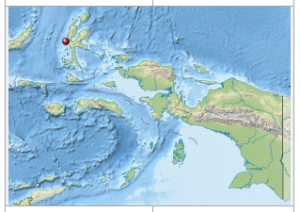Amnesty International, 23/11/2011 – The fact that eight Indonesian police officers involved in a violent crackdown on a peaceful gathering that left three dead have only been given written warnings, is a failure of human rights accountability, Amnesty International said today.
The warnings were given after an internal disciplinary hearing on 22 November found that the officers violated the police Disciplinary Code. On the afternoon of 19 October 2011, police and military units violently dispersed peaceful participants of the Third Papuan People’s Congress, a gathering being held in Abepura, Papua province.
The bodies of Demianus Daniel, Yakobus Samonsabara, and Max Asa Yeuw were later found near the Congress area. “These written warnings are a slap on the wrist. They do not provide accountability for the deaths of three people, nor for the use of excessive and unnecessary force against a peaceful gathering,” said Sam Zarifi, Amnesty International’s Asia-Pacific Director. Some 300 participants were arbitrarily arrested and ill-treated at the end of the Congress.
Most were released the following day but six have been charged and are currently awaiting trial. Amnesty International has called on the authorities to act on the findings of the Indonesian National Human Rights Commission (Komnas HAM) that rights violations were committed by security forces, and to prosecute those responsible. “Even though the Indonesian authorities have a responsibility to prosecute human rights violators, this is yet another example of how in Indonesia, most human rights violations committed by police officers never reach civilian courts, but are dealt with through inhouse disciplinary hearings,” said Sam Zarifi. “Internal disciplinary procedures are for dealing with minor offences, not serious human rights violations.” Amnesty International also urges the Indonesian authorities to set up an independent police complaints mechanism to deal with human rights violations by police officers. Current bodies such as the National Police Commission or the National Human Rights Commission do not have the powers to deal effectively with complaints about police abuses, nor to provide reparations to victims.
A Komnas HAM investigation team found a range of human rights violations were allegedly committed by the Indonesian security forces on 19 October, including opening fire on the peaceful Papuan gathering and beating and kicking participants. It was reported on 7 November that the President’s office had rejected the Komnas HAM findings, stating that the police were still handling the case. On 22 November, an internal police disciplinary hearing in Jayapura, Papua found the former Jayapura Police Chief Iman Setiawan guilty of violating the Disciplinary Code for “his inability to co-ordinate police officers under his command”. Seven police officers from Jayapura City were also found guilty of violating the code for not “protecting and servicing the community with the best of their ability” and “degrading the honour and dignity of the state and the police”. They were all each given a written warning. The disciplinary hearings for the seven police officers were reportedly held behind closed doors.
Amnesty International, 23/11/2011 – The fact that eight Indonesian police officers involved in a violent crackdown on a peaceful gathering that left three dead have only been given written warnings, is a failure of human rights accountability, Amnesty International said today.
The warnings were given after an internal disciplinary hearing on 22 November found that the officers violated the police Disciplinary Code. On the afternoon of 19 October 2011, police and military units violently dispersed peaceful participants of the Third Papuan People’s Congress, a gathering being held in Abepura, Papua province.
The bodies of Demianus Daniel, Yakobus Samonsabara, and Max Asa Yeuw were later found near the Congress area. “These written warnings are a slap on the wrist. They do not provide accountability for the deaths of three people, nor for the use of excessive and unnecessary force against a peaceful gathering,” said Sam Zarifi, Amnesty International’s Asia-Pacific Director. Some 300 participants were arbitrarily arrested and ill-treated at the end of the Congress.
Most were released the following day but six have been charged and are currently awaiting trial. Amnesty International has called on the authorities to act on the findings of the Indonesian National Human Rights Commission (Komnas HAM) that rights violations were committed by security forces, and to prosecute those responsible. “Even though the Indonesian authorities have a responsibility to prosecute human rights violators, this is yet another example of how in Indonesia, most human rights violations committed by police officers never reach civilian courts, but are dealt with through inhouse disciplinary hearings,” said Sam Zarifi. “Internal disciplinary procedures are for dealing with minor offences, not serious human rights violations.” Amnesty International also urges the Indonesian authorities to set up an independent police complaints mechanism to deal with human rights violations by police officers. Current bodies such as the National Police Commission or the National Human Rights Commission do not have the powers to deal effectively with complaints about police abuses, nor to provide reparations to victims.
A Komnas HAM investigation team found a range of human rights violations were allegedly committed by the Indonesian security forces on 19 October, including opening fire on the peaceful Papuan gathering and beating and kicking participants. It was reported on 7 November that the President’s office had rejected the Komnas HAM findings, stating that the police were still handling the case. On 22 November, an internal police disciplinary hearing in Jayapura, Papua found the former Jayapura Police Chief Iman Setiawan guilty of violating the Disciplinary Code for “his inability to co-ordinate police officers under his command”. Seven police officers from Jayapura City were also found guilty of violating the code for not “protecting and servicing the community with the best of their ability” and “degrading the honour and dignity of the state and the police”. They were all each given a written warning. The disciplinary hearings for the seven police officers were reportedly held behind closed doors.

